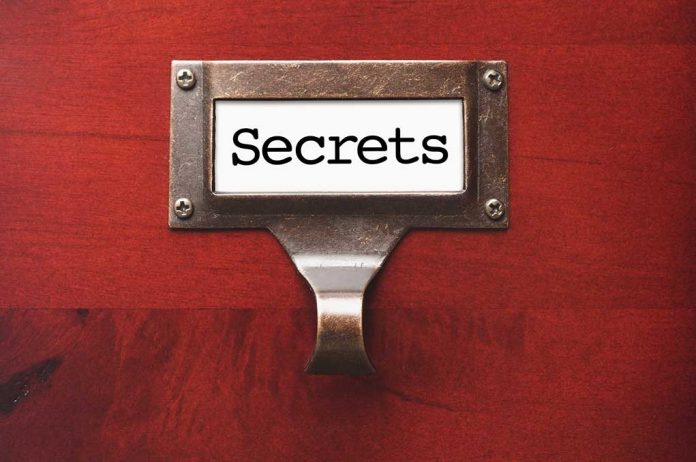
A shocking military massacre, hidden for years, has been exposed through legal proceedings, revealing a disturbing cover-up orchestrated by top-level officials.
At a Glance
- The Haditha massacre in Iraq in 2005 resulted in the deaths of 24 unarmed civilians.
- Military officials attempted to conceal evidence of the massacre.
- Time Magazine’s reporting led to a military investigation.
- No one was jailed for the killings or cover-up.
- Legal challenges and FOIA requests have uncovered shocking details.
The Haditha Massacre: A Dark Chapter in Military History
In November 2005, a tragic event unfolded in Haditha, Iraq, that would come to be known as one of the most heinous acts committed by U.S. forces during the Iraq War. After a roadside bomb killed a Marine, a squad retaliated by killing 24 unarmed Iraqi civilians, including men, women, and children. This incident, initially concealed from public view, has now resurfaced due to persistent legal challenges and investigative journalism.
U.S. Marines killed 24 civilians in Haditha, Iraq, and documented the aftermath. For years, the military has tried to keep the photos from the public. The New Yorker is now publishing newly obtained images. https://t.co/hElRUN2B6N
— The New Yorker (@NewYorker) August 28, 2024
The revelation of this massacre and its subsequent cover-up raises critical questions about accountability within the armed forces and the lengths to which military officials will go to maintain secrecy. The case has exposed a disturbing pattern of behavior that extends beyond this single incident, shedding light on similar occurrences involving private military contractors and other armed forces worldwide.
The Cover-Up: A Coordinated Effort
The extent of the cover-up became apparent through legal proceedings and investigative efforts. Former Marine Corps Commandant Michael Hagee’s comments reveal the military’s mindset in handling the situation. In a shocking admission, Hagee stated:
The massacre “’could have been horrific for the Marine Corps if we did not handle that correctly. Another My Lai. Or another Abu Ghraib,” Hagee claims, referring to the My Lai massacre, an event that turned American opinions against the Vietnam War, and the Abu Ghraib prison in Iraq, where U.S. soldiers and CIA officers were photographed torturing inmates.
This statement underscores the military’s prioritization of its image over transparency and justice. The deliberate suppression of photographic evidence, as proudly claimed by Hagee, further demonstrates the lengths to which officials went to conceal the truth.
The Aftermath: Justice Denied
Despite the gravity of the Haditha massacre, justice has remained elusive. No one was jailed for the killings or the cover-up. Staff Sgt. Frank Wuterich, who led the Marine squad responsible for the massacre, was merely demoted after pleading guilty to dereliction of duty. This lack of accountability has left survivors and relatives of the victims seeking justice and closure.
“I’ll never be able to get that out of my head. I can still smell the blood. This left something in my head and heart,” said Lance Cpl. Ryan Briones, one of two marines who shared photographs of the massacre with The New Yorker.
The emotional toll on those who witnessed the aftermath, like Marine Lucian Read, is immeasurable. Their testimonies serve as a stark reminder of the human cost of such atrocities and the importance of bringing the truth to light.
A Pattern of Misconduct
The Haditha massacre is not an isolated incident. Similar cases involving private military contractors and other armed forces have come to light, pointing to a broader pattern of misconduct and cover-ups. The case of Blackwater USA, now known as Academi, illustrates the prevalence of such incidents. Between 2005 and 2007, Blackwater employees were involved in nearly 200 shootings in Iraq, often firing from moving vehicles without stopping to count the dead or assist the wounded.
These revelations underscore the need for greater oversight and accountability in military operations and the use of private contractors in conflict zones. The persistence of investigative journalists, legal professionals, and human rights organizations in uncovering these truths is crucial in ensuring that such atrocities do not go unnoticed or unpunished.
As we reflect on these disturbing events, it becomes clear that the pursuit of justice and accountability in military affairs is an ongoing struggle. The exposure of the Haditha massacre and its cover-up serves as a reminder of the importance of transparency and the need for robust systems to hold those in power accountable for their actions, even in the fog of war.
Sources:
- The Military Tried To Hide Evidence of a Massacre. A Lawsuit Just Exposed It.
- Report Says Firm Sought to Cover Up Iraq Shootings
- The Massacre at My Lai
- The Hathida Massacre Photos That the Military Didn’t Want the World to See
- ‘This Is What the US Military Was Doing in Iraq’: Photos of 2005 Haditha Massacre Finally Published
- Images expose US Marines massacre of civilians in Iraq’s Haditha.
- 19 years on, Haditha massacre photos testament to US war crimes in Iraq







